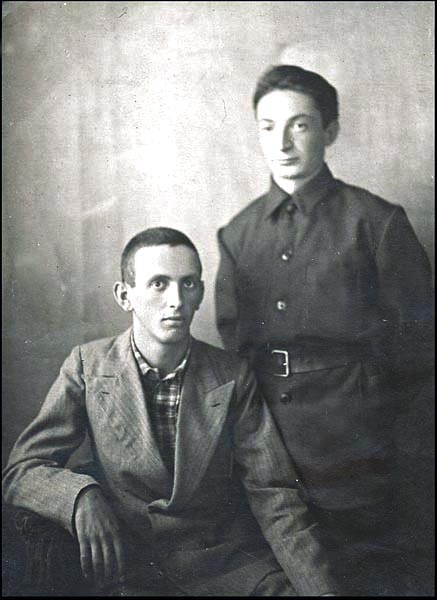Aleksandr Khvoles was born in 1920 in Tskhinvali, Georgia. He was a grandson of the famous local rabbi Avraham Khvoles (1854, Kaunas (Lithuania) – 1931, Tskhinvali). Lithuanian born Avraham Khvoles arrived in Tskhinvali in 1890 and remained with the local Jewish community as its leader and a religious teacher. His authority was so great that one of his pupils, Rabbi Moshe Davarashvili, coined the phrase "Out of Tskhinvali shall go forth Torah" (paraphrasing the passage from Isaiah: "For out of Zion shall go forth the Law, and the word of the Lord from Jerusalem").
In 1941, Aleksandr Khvoles graduated from the faculty of mathematics of Tbilisi University. Since the Soviet-German war had already begun, Khvoles was supposed to be drafted into the Red Army, but leading Georgian mathematicians wrote to the commander of the Transcaucasian Military District asking to postpone the conscription of the talented young mathematician. Upon graduating from the university, Khvoles was sent to the Rustavi Aviation Military School as a teacher of mathematics. Despite the postponement, in March 1942 Aleksandr was drafted and sent to the Tbilisi artillery school, from which he graduated at the end of the year with the rank of lieutenant. His rifle division was deployed in the Northern Caucasus near Krasnodar, where fighting was under way. Heavy shelling by the enemy impeded the transportation of food to the soldiers and they were starving Khvoles refused to eat his special officer's ration and gave it to the "common pot", while he devoured the same food as his soldiers did.
After the war, Aleksandr said that his mathematical education had helped him greatly during the war. He could quickly calculate data required for aiming artillery. Furthermore, during short breaks, he solved mathematical problems in his mind to help distract him from disturbing thoughts.
In the summer of 1943 Kvoles's division took part in the Kursk Operation. For his part in it, Aleksandr was awarded the Order of the Red Star. Later he fought in Ukraine. In West Ukraine in July 1944, he was wounded for the second time. Following this injury, Khvoles was dismissed from army service as an invalid.
After the war, Aleksandr Khvoles taught at Tbilisi University. In 1949, he defended a dissertation on integral equations. In 1950 the minister of education of the Soviet Republic of Georgia proposed Khvoles for the position of assistant rector of the South-Ossetian Pedagogical Institute (Khvoles knew the Ossetian language, as well as Georgian). This was at the beginning of Stalin's postwar anti-Jewish campaign, and Khvoles doubted that his appointment would be approved. By chance, while at the national Ministry of Education in Moscow, Aleksandr met his former regimental commander. The latter informed the deputy minister of education about Khvoles' wartime heroism. The commander stressed that, although Khvoles had been severely wounded in battle in July 1944, he continued to command his platoon. As a result of this information, Khvoles was appointed assistant rector but later returned to Tbilisi.
In 1990 Khvoles and his family immigrated to Israel.

